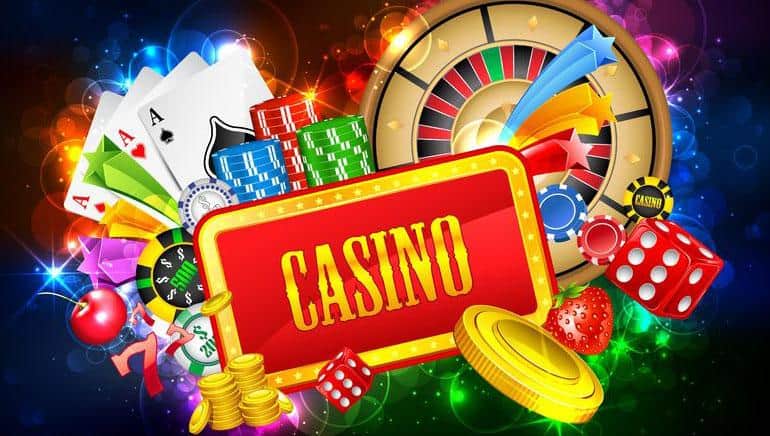
In the world of gambling, in which chance and strategy intersect, a unique tapestry of beliefs emerges—one that braids luck, fate, and the enigmatic nature of casino games. Casinos, bustling with excitement and anticipation, are not just spaces for placing bets; they are also arenas in which superstitions thrive. From the novice player to the seasoned gambler, these mysterious practices often shape how individuals approach the games they play, holding the belief that their actions can affect the outcome in ways that go beyond mere probability. m8win
When players gather around roulette wheels, blackjack tables, and slot machines, the atmosphere is thick with stories of lucky charms, rituals, and codified behavior that defy logic yet provide a sense of comfort. It could be the case that it’s wearing a specific outfit, following a particular sequence of bets, or even avoiding certain numbers, the attachment to various superstitions reflects a deep-rooted desire to control the uncontrollable. This article delves into the captivating world of casino game superstitions, exploring the beliefs that simultaneously entertain and mystify those who dare to play.
Historical Origins of Superstitions
Gambling games have long been connected with an host of superstitions that go back to early cultures. The beginnings of these ideas can be connected to humanity’s intrinsic need to influence the random outcomes associated with fortune and chance. In early civilizations, activities of chance were often tied to ritualistic practices. Gamblers would seek blessings or request favor from deities, believing that their actions could change the outcomes in their benefit. This basis laid the groundwork for the multitude of superstitions that proliferated as casino games evolved over centuries.
During the medieval age, gambling became a common hobby across European nations, and with it, a colorful tapestry of superstitions emerged. Players adopted different rituals and charms, believing they could affect the consequences of games. The importance of numbers, in particular, started to appear in superstitions pertaining to card games and dice. The number 7 was often considered favorable, while various numbers carried bad connotations. These notions mirrored the cultural contexts of the time, changing as they transferred through generations and transformed to emerging gaming environments.
As casinos appeared in the 1600s, particularly in Italy and France, the atmosphere surrounding gambling became imbued in mystique. The growing availability of casino activities allowed for the expansion and variation of superstitions among players. Concepts like fortunate charms, special seating locations, and rituals gained prominence, creating a special culture within casinos. As these traditions continued to thrive, they became integral to the essence of casino games, illustrating how history and culture shape the notions that influence how players engage with fortune.
Common Gambling Myths
Superstitions surrounding gambling activities are plentiful and diverse, mirroring the hopes and fears of players as they participate in random games. One of the most common beliefs is that specific digits bring fortune or bad luck. For example, the digit 7 is often seen as a favorable number, frequently sought after by gamblers looking for a positive result. Conversely, the digit 13 is routinely considered cursed, leading many players to steer clear of it during their gaming periods.
A frequent superstition relates to rituals that players believe can affect their chances. It could be blowing on the dice before a throw, using a specific hand to place a wager, or even putting on particular items of attire, many people feel that these rituals can sway fate in their favor. These rituals offer a feeling of power in an otherwise unpredictable environment, reinforcing the idea that fortune can be manufactured through personal beliefs and habits.
Lastly, the ambiance and vibe of the casino itself contributes to superstition. Many gamblers suggest that the presence of specific symbols, such as four-leaf clovers or lucky coins, can enhance their chances of success. Additionally, gamblers might hold to the belief that victory streaks can be interrupted by mundane occurrences, such as a person walking past or a accident at the table. The collective environment in a gambling house can amplify these superstitions, creating a shared culture of myths that goes beyond single experiences.
Impact of Superstitions on Players
Beliefs play a crucial role in the psychology of gamblers, often influencing their actions and decision-making. Numerous gamblers believe that fortune can be influenced through different rituals, such as wearing a lucky charm, choosing particular hues, or avoiding certain numbers. This reliance on superstitions can create a feeling of control in an environment that is inherently unpredictable. Players frequently feel more self-assured and involved when they believe that their actions could sway the outcome of a game in their advantage.
The impact of these superstitions extends past individual players, affecting the general atmosphere inside the casino. For instance, a player who holds the belief in the luck of a particular slot machine might attract a crowd, as onlookers are intrigued by their apparent success. This collective belief can amplify excitement and create a lively environment, leading to an interesting experience even for those who may not necessarily be superstitious. The excitement around certain games can lead to higher participation and longer playing sessions, supporting the casino’s lively social scene.
In some cases, superstitions can lead to detrimental effects for players. Depending too much on rituals can result in poor gambling decisions, as some may overlook basic strategies in favor of baseless beliefs. Additionally, the stress to perform rituals may increase anxiety and stress levels, diminishing from the pleasure of the experience. Ultimately, while superstitions can enhance the excitement of playing casino games, they can also lead to unwise choices that overshadow the fun and amusement intended in the casino experience.